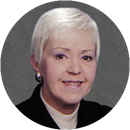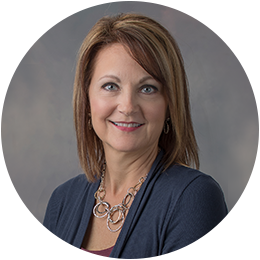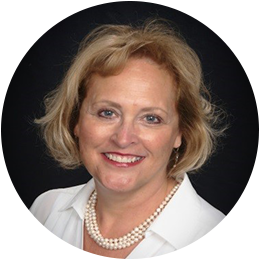
Public speaking is a leadership opportunity that knocks and opens the door for professional growth.
-
The phone rings, an email arrives with the invitation to be a presenter at an industry conference.
-
Your one up calls on you to be a presenter as part of an educational series on an industry topic to the colleagues in your organization.
-
You see an opportunity to present at NAMSS, State Association and/or the National Provider Enrollment conference.
Your internal voice starts the conversation, “Yes, I am ready!” Then you may pause as you feel uncomfortable which is to be expected. My advice is to embrace the challenge!
Take the leap! When an opportunity presents itself, open the door to add to your professional toolbox of expertise and build your professional reputation as a subject matter expert for your industry.
Our conversation is with two industry experts that we have interviewed to share their advice and expertise on what it takes to be a successful public speaker. Renee Dengler is one of our VerityStream Consultants who is a well-regarded public speaker who engages her audience and organizational leaders with a wide breath of industry knowledge. Kris Bigelow from Parkview, also an experienced speaker has joined our Thrive Conferences, panel discussions and webinars, and often called upon to present to her organization leadership on industry content.

Renee Aird Dengler, RN, MS, CPMSM, CPCS, FMSP
Senior Consultant / Independent Contractor
VerityStream

Kris Bigelow, BSBM, CPMSM
Director Enterprise Credentialing and Methods
Parkview
What advice would you provide to a colleague who is new to public speaking?
Renee
Glossophobia? Don’t let the fear of public speaking stop you! They say that about 73% of the population have a fear of speaking in public, so you are not alone. There are several steps you can take to help you get past this fear and be a successful speaker.
Be Prepared – Know your material. Go over it and over it until you are really comfortable with it (but don’t memorize it). Nervous? That’s not a bad thing. The most experienced speakers are often nervous just before they start.
Practice – Some people find it helpful to do their presentation to a few colleagues or family members. Others practice their presentation in front of a mirror. However you do it, you need to practice even if it is by yourself. Practice your opening line(s)!
Pay attention to your material, not the audience – Don’t let the audience distract you from what you want to say. After some practice, you’ll be able to look audience members in the eye when you talk, but in the beginning, you may need to look over the top of their head if looking straight at someone throws you off.
Silence – A moment of silence is not deadly. You may momentarily lose your train of thought. I can pretty much guarantee you that it will only last for a few seconds (even though it feels like 10 minutes), and your audience will believe it was planned. Take a sip of water and a deep breath. If you know your material and you’ve practiced it, you will be able to get right back into the presentation.
Kris
When representing your organization – Provide background on your role, organization and structure. You may also find that sharing department roles and accountabilities provides helpful information to the audience. This helps the audience relate and connect with you as the presenter.
Keep the slides simple – You don’t want to read to the audience or move to quickly which can leave people feeling like they missed something.
Think about the audience perspective when you prepare the presentation – What do they want to hear, what will help them gain something about the topic.
Share some lessons learned
Renee
Without going into the stories on each of these “unexpected” events, here is my list of a few items for which you should be prepared:
Equipment – arrive early, is the presentation is loaded, does the projector work, test sound system.
Sound System – are you speaking from a podium with a stationery mic, have a hand-held mic or a lapel mic. They all have their own issues that you need to deal with, and you don’t want to find out at the last minute that you don’t have a pocket, waistband, or suitable garment to accommodate a lapel microphone.
Logistics – where are the washrooms, when the break/lunch will be held. Make this part of your early welcome announcement.
In-person presentations – have someone in the room that can get help if the need arises. They can contact someone if the sound system or equipment fail, give you a 5–10-minute signal, manage disruptive noise from adjacent room.
Many people come to presentations with a “burning question” that they want answered – Be prepared for questions without taking up an inordinate amount of presentation time.
In-person presentations – Set clear expectations and ground rules for cell phones, private conversations at tables, and other issues that can be disruptive.
Kris
I always speak more quickly than in a practice run, which I’m still working to improve. My most awkward presentation was when I counted on the slides to keep me on track. I have learned that when I create presentations around what I can easily speak to, the slides are more meaningful for the audience. I’ve learned to be confident in my knowledge base and that I have something to share with others. I also remain grateful to others that are willing to present and help me continue to learn!
As we wrap up our conversation, can you share a memorable experience?
Renee
Too many to mention. I almost never leave a presentation without learning something from the participants. A definite reward is when a participant tells me that they finally feel they “understand” something; say, “I’m going to try that” or “I never thought of it like that”. We all learn from each other.
Kris
The first time I spoke all I could think about was my own nerves. However, once I started speaking, I could see that the audience was engaged and listening. Afterwards, the attendees thanked me for sharing. They truly seemed to appreciate my knowledge and expertise. That left me with the sense that maybe, if even in a small way, someone grabbed an idea to carry back to their organization and make an impact. That was a wonderful feeling!
Thank you to Renee Dengler and Kris Bigelow for sharing your knowledge and expertise. We look forward to joining your next public speaking event!
